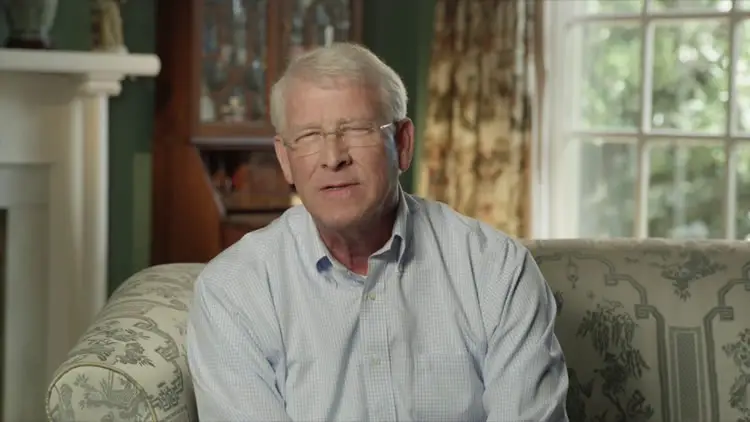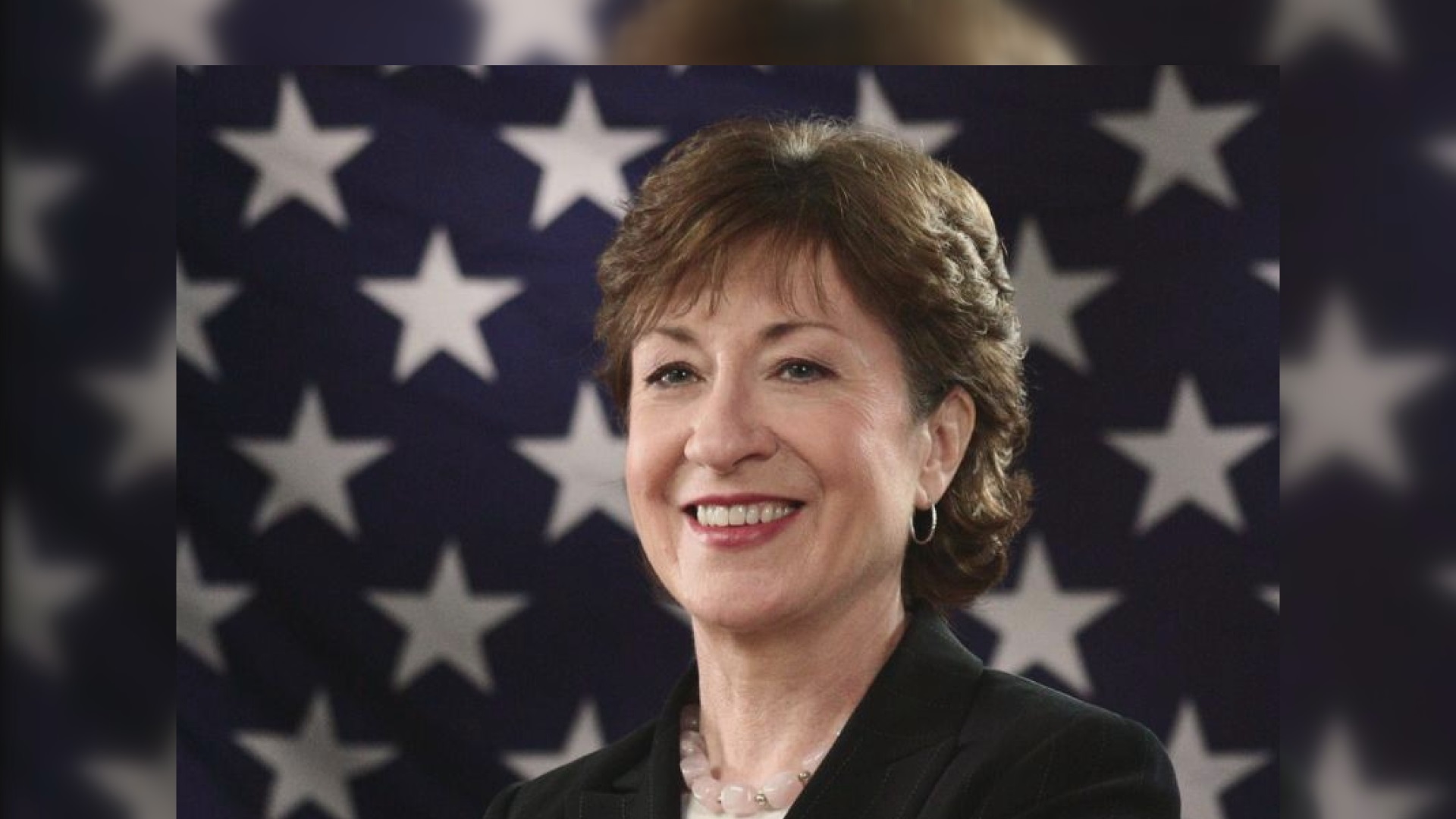Roger Wicker Biography | Roger Wicker Bio
Roger Wicker born Roger Frederick Wicker is an American attorney and politician who is the senior United States Senator from Mississippi, in office since 2007.
A member of the Republican Party, Wicker previously served as a member of the United States House of Representatives and the Mississippi State Senate.
Wicker was an officer in the United States Air Force from 1976 to 1980 and later served as a member of the United States Air Force Reserves from 1980 to 2003. During the 1980’s, he worked as a political counselor to then-Congressman Trent Lott on the House Rules Committee.
In 1987, Wicker was elected a member of the Mississippi State Senate representing the 6th district, which included Tupelo. Wicker was elected to the U.S. House of Representatives in 1994, succeeding long-time Democrat Jamie Whitten.
Wicker served in the House from 1995 to 2007, when he was appointed to the Senate by Governor Haley Barbour to fill the seat vacated by Trent Lott.
Wicker subsequently won a special election for the remainder of the term in 2008 and was reelected to a full-term in 2012. Wicker served as chairman of the National Republican Senatorial Committee from 2015 to 2017 and is a deputy Republican whip. Wicker won re-election in the 2018, defeating Democrat David Baria.
Roger Wicker Age
He was born on 5 July 1951 in Pontotoc, Mississippi, United States. He is 67 years old as of 2018.
Roger Wicker Family
He is son to Wordan Glen Wicker, his mother and Thomas Frederick Wicker, his father. He is husband to Gayle Wicker. He is also a loving father to McDanie Wicker, Caroline Sims and Margaret McPhillips. He is a father of three childre; two daughters and one son.

Senator Roger Wicker Office
He has held the office of the Senator of Mississippi since 2007.
Sen Roger Wicker
Appointment
On November 26, 2007, U.S. Senator Trent Lott announced that he would resign before the end of the year to become a lobbyist. At a press conference on December 31, 2007, Mississippi Governor Haley Barbour appointed Wicker to fill the Senate seat vacated by Trent Lott on December 18, 2007. He was sworn in by the clerk of the U.S. Senate just prior to that news conference.
Elections
Wicker ran for the remainder of Lott’s term in the November 2008 special election against Democrat Ronnie Musgrove, Barbour’s predecessor as governor. Wicker defeated Musgrove by 683,409 votes (54.96%) to 560,064 (45.04%).
Wicker’s resignation from the House also triggered a May 13, 2008 special election to fill the vacancy in the House, which was won by Democratic nominee Travis Childers.
Wicker ran for re-election to a full term in 2012. He was opposed by Robert Maloney and Tea Party activist E. Allen Hathcock in the Republican primary, defeating them by 254,936 votes (89.17%) to 18,857 (6.60%) and 12,106 (4.23%), respectively.
In the general election, he defeated Albert Gore, the Chairman of the Oktibbeha County Democratic Party and a distant relative of former Vice President Al Gore, by 709,626 votes (57.16%) to 503,467 (40.55%).
Tenure
On September 16, 2010, President Barack Obama announced his intent to nominate Wicker as representative of the United States to the Sixty-fifth Session of the General Assembly of the United Nations.
In the Senate, Wicker is a member of the Senate Republicans’ whip team and has repeatedly introduced a bill to overturn Roe v. Wade, the Supreme Court decision legalizing abortion.
Wicker called the health care overhaul the “great fight for the rest of this term, maybe our lifetimes” and later introduced a bill to enable state officials to challenge the law.
In the interest of protecting gun owners, he amended a fiscal 2010 transportation spending bill to allow Amtrak passengers to carry firearms and ammunition in checked baggage.
With Democratic Rep. Gene Taylor, he pushed amendments allowing purchasers of federal flood insurance to add wind coverage to their policies, helpful to a hurricane-prone state.
As a member of the Commission on Security and Cooperation in Europe (Helsinki Commission) monitoring human rights and other issues, Wicker worked with Maryland Democratic Sen. Ben Cardin to push into law in late 2012 a bill imposing penalties on Russians accused of violating human rights.
The measure led Russian President Vladimir Putin to announce a subsequent ban on U.S. adoptions of Russian-born children. In July 2013, Wicker proposed that the Senate meet to discuss a controversial change to filibuster rules.
The Senate held the private meeting in the Old Senate chamber to discuss Senate Majority Leader Harry Reid’s threat of the so-called “nuclear option”, which would change the rules for Senate votes on President Obama’s executive branch nominees.
Wicker said he hoped the chamber’s bipartisan past could serve as an inspiration for the debate about the nuclear option: “I think there are concessions that can be made on both sides. And then I would just hope that, institutionally, we can get away from this mindset.”
Wicker supported the Bipartisan Sportsmen’s Act of 2014 (S. 2363; 113th Congress), a bill related to hunting, fishing, and outdoor recreation in the United States, aimed at improving “the public’s ability to enjoy the outdoors.”
He said that “Mississippians know the importance of efforts to preserve our natural resources for future generations.”
He was elected to serve as Chairman of the National Republican Senatorial Committee for the 114th U.S. Congress on November 13, 2014.
Weeks after the 2014 Hong Kong class boycott campaign and Umbrella Movement broke out which demands genuine universal suffrage among other goals, Wicker among bipartisan colleagues joined U.S. Senator Sherrod Brown and Rep. Chris Smith’s effort to introduce Hong Kong Human Rights and Democracy Act which would update the United States–Hong Kong Policy Act of 1992 and U.S. commitment to Hong Kong’s freedom and democracy.
“U.S. should stand steadfast with the people of Hong Kong in their fight to exercise self-determination,” Wicker, vice-chairman of the Helsinki Commission said. “… speak with a unified American voice in support of universal freedom and democratic values.
The Congress and the Obama Administration should act to ensure China honors its longstanding obligation under international law to maintain Hong Kong’s autonomy.”
Poisoning attempt
On April 16, 2013, a letter addressed to Wicker tested positive for the poison ricin. The letter was detected by postal officials and law enforcement and was prevented from reaching the Capitol.
The letter was tested three times, with each test confirming the presence of ricin.
Roger Wicker Email | Contact Roger Wicker
You can contact him via phone on (202) 224-6253 or (601) 965-4644. You can also contact him via fax on (202) 228-0378 or (601) 965-4007.
You can easily access him form his office on 100 Constitution Avenue, NE
Washington, DC 20510-2404 or 501 East Court Street
Jackson, MS 39201-5037.
Contact his email on roger@wickerforsenate.com or info@wickerforsenate.com.
Read about his daily activities on his official website at https://www.wicker.senate.gov/public/index.cfm/contact
Senator Roger Wicker Staff | Roger Wicker Staff
Chief of Staff: Michelle Barlow Richardson
Scheduler: Hall Carter
Scheduler: Jen Jett
Acting Legis. Dir: Robert Murray
Press Secy.: Phillip Waller
Comm. Dir.: Rick VanMeter
Veteran Affairs LA: Charles Hockenbury
Military LA: James Mazol
Child/Family Issues LA: Brett Richards
Health LA: Samantha Elleson
Financial Services LA: Robert Murray
Foreign Policy LA: James Mazol
Education LA: Robert Murray
Agriculture LA: Brett Richards
Telecomm LA: Olivia Trusty
Elections LA: Brett Richards
Energy LA: Ellen Beares
Environment LA: Neal McMillin
Firearms LA: Brett Richards
Judiciary LA: Brett Richards
Tax LA: Chloe Cantor
Transportation LA: Ellen Beares
Trade LA: Brett Richards
Commerce LA: Olivia Trusty
Labor LA: Samantha Elleson
Budget LA: Chloe Cantor
Arts/Humanities LA: Vacant
Civil Rights LA: Brett Richards
Government Affairs LA: Brett Richards
Housing LA: Vacant
Medicare/Medicaid LA: Samantha Elleson
Appropriations LA: Various
Science/Technology LA: Olivia Trusty
Social Security LA: Chloe Cantor
Space – NASA LA: James Mazol
Pensions LA: Chloe Cantor
Pensions LA: Samantha Elleson
Animal Welfare LA: Neal McMillin
Women’s Issues LA: Vacant
Native American Affairs LA: Samantha Elleson
Immigration LA: Brett Richards
Homeland Security LA: James Mazol
Staff Asst.: Sally Farrington
LC: Chloe Cantor
LC: Charles Hockenbury
Speechwriter: Megan Voelkel
Special Asst.: Daniel Tillson
LC: Jacob Smith
Speechwriter: Megan Rathburn
Staff Asst.: Leslie Willis
Counsel: Brett Richards
National Security Advisor: James Mazol
Legis. Asst.: Brett Richards
Legis. Asst.: Olivia Trusty
Legis. Asst.: Samantha Elleson
Legis. Asst.: Ellen Beares
Legis. Asst.: Neal McMillin
Legis. Asst.: Robert Murray
Dep. Chief of Staff: Sarah Drake
State Dir.: Ryan Annison
Fellow: Cullen Greenfield
Fellow: Bret Spanks
Fellow: Jake Rendon
Roger Wicker Committees
Committee Assignments, 115th Congress
- Senate Committee on Armed Services
- Subcommittee on Airland
- Subcommittee on Personnel
- Subcommittee on Seapower (Chairman)
- Senate Committee on Commerce, Science and Transportation
- Subcommittee on Aviation Operations, Safety, and Security
- Subcommittee on Communications, Technology, and the Internet (Chairman)
- Subcommittee on Oceans, Atmosphere, Fisheries, and Coast Guard
- Subcommittee on Surface Transportation and Merchant Marine Infrastructure, Safety and Security
- Senate Committee on Environment and Public Works
- Subcommittee on Clean Air and Nuclear Safety
- Subcommittee on Green Jobs and the New Economy
- Subcommittee on Superfund, Toxics and Environmental Health
- Subcommittee on Transportation and Infrastructure
- United States Senate Committee on Rules and Administration
- Commission on Security and Cooperation in Europe
Caucus memberships
- Congressional Human Rights Caucus
- Congressional Immigration Reform Caucus
- International Conservation Caucus
- Interstate 69 Caucus (Co-Chair)
- Sportsmen’s Caucus
- Tennessee Valley Authority Congressional Caucus
Roger Wicker Mississippi
Wicker began his political career in 1980 as House Rules Committee counsel to Republican Congressman Trent Lott. He was then elected to the Mississippi State Senate in 1987, spending $25,000 to win the race. He represented the 6th district from 1988 to 1994, which included Tupelo.
US Senator Roger Wicker
Elections
In 1994, Democratic U.S. Representative Jamie L. Whitten declined to seek re-election; he had represented the 1st District for 54 years, longer than any other congressman at the time. Wicker ran to succeed him, spending $750,000 over the course of the election.
He finished first in a crowded six-way Republican primary with 7,156 votes (26.62%) and proceeded to a runoff with attorney Grant Fox, who received 5,208 votes (19.37%). Former U.S. Attorney Bob Whitwell finished 600 votes short of the runoff with 4,606 votes (17.14%), 1992 nominee Clyde E.
Whitaker came fourth with 4,602 votes (17.12%), 1986 nominee Larry Cobb came fifth with 4,162 votes (15.48%) and 1990 nominee Bill Bowlin took the remaining 1,147 votes (4.27%). In the runoff, Wicker defeated Fox by 11,905 votes (53.07%) to 10,527 (46.93%).
In the general election, Wicker defeated Fulton attorney Bill Wheeler by 80,553 votes (63.06%) to 47,192 (36.94%), making him the first Republican to represent the 1st district in over a century.
However, this was not considered an upset, as the 1st has always been a rather conservative district (especially in the Memphis suburbs).
The district had only supported the official Democratic candidate for president once since 1956, when Jimmy Carter carried the district in 1976.
Although Whitten had a nearly unbreakable hold on the district, it had been considered very likely that he would be succeeded by a Republican once he retired.
Wicker was re-elected six times without serious difficulty, never dropping below 65 percent of the vote. In 2004, he was unopposed by a Democratic candidate, facing only Reform Party nominee Barbara Dale Washer, whom he defeated by 219,328 votes (79.01%) to 58,256 (20.99%).
Tenure
Assuming office in 1995, he was President of the freshman class, which included 53 other new Republican Congressmen, elected as part of the 1994 “Republican Revolution”.
He was a member of the House Appropriations Committee. He was also deputy Republican whip. In Congress, Wicker worked on issues related to medical research and on economic development for his home state.
He advocated private-public partnerships to bring investment to rural areas. Wicker also worked for veterans’ issues while serving as a member of the Military Construction and Veterans Affairs Subcommittee.
In his final year as representative, Wicker topped the list in earmarks. In 2007, Wicker was criticized after securing a $6 million earmark for a defense company whose executives had made significant contributions to his campaign.
Roger Wicker Facebook
Roger Wicker Twitter
Roger Wicker Instagram
https://www.instagram.com/p/BqLfXK2B8vs/?utm_source=ig_web_copy_link
Roger Wicker News
Roger Wicker: Coast Guard bill extends critical service
Updated on: 19 November 2018.
After years of negotiations, the Senate has passed a two-year re-authorization of the Coast Guard. The bipartisan legislation is exhaustive, just as are the Coast Guard’s wide-ranging missions.
Not only does the bill support the tens of thousands of Americans in the service’s active-duty, reserve, civilian and auxiliary forces, but it anticipates the Coast Guard’s long-term needs.
The Coast Guard is responsible for carrying out 11 core missions for the American people. One of those missions is search-and-rescue, which Mississippians saw firsthand after Hurricane Katrina.
That mission has been repeatedly fulfilled over the past two years as active hurricane seasons brought devastating storms to U.S. coastlines and put American lives at risk.
Another mission is to stop illegal drugs from entering the United States, and the Coast Guard continues to tally major drug busts. Last year, the service set a record for its counter-drug operations, intercepting more than 455,000 pounds of cocaine valued at $6 billion.
On an average day, the Coast Guard could seize upwards of 1,000 pounds of illegal narcotics. To be effective in these missions, the men and women of the Coast Guard need technologically advanced equipment.
Mississippi’s shipbuilders have risen to this challenge, building all of the Legend-class national security cutters in the Coast Guard’s fleet. The value of these ships is recognized in the Coast Guard bill, which approves the purchase of three more.
Another provision in the bill recognizes urgent maintenance needs, in particular for the Polar Star, our nation’s only heavy polar icebreaker. At 42 years old, this vessel is 12 years past its intended service life.
However, the strategic importance of the Arctic and its potential as a shipping corridor continue to rise. The United States faces serious geopolitical competition from countries like Russia that have aggressively built a large icebreaker fleet.
The Coast Guard bill also addresses concerns from America’s commercial vessel operators, who have faced a patchwork of regulations regarding a vessel’s ballast water discharge.
The discharge of ballast water is important to a ship’s buoyancy, but it can also have an environmental impact. The fear is that the discharge of ballast water could inadvertently introduce an invasive and potentially harmful species into a new environment.
To combat these concerns, regulations have been put into place over time by the Coast Guard, EPA and 25 states. The Coast Guard bill will simplify the situation with the adoption of a uniform, science-based national standard for ballast water discharge.
I have been a longtime proponent of streamlining the current regulations, even authoring a standalone bill to do so. I am glad key provisions of my bill were included in the Coast Guard’s re-authorization and have earned the Senate’s support.
The approach combines the enforcement capability of the Coast Guard and the environmental expertise of the Environmental Protection Agency.
The value the Coast Guard provides to the American people is evident in the scope of this re-authorization bill and the dedication by lawmakers to get it right.
The service’s diverse missions are critical to public safety and national security, as evidenced by the vote of 94 to 6 on the bill’s final passage in the Senate.
Adopted from: www.djournal.com
About InformationCradle Editorial Staff
This Article is produced by InformationCradle Editorial Staff which is a team of expert writers and editors led by Josphat Gachie and trusted by millions of readers worldwide.
We endeavor to keep our content True, Accurate, Correct, Original and Up to Date. For complain, correction or an update, please send us an email to informationcradle@gmail.com. We promise to take corrective measures to the best of our abilities.




